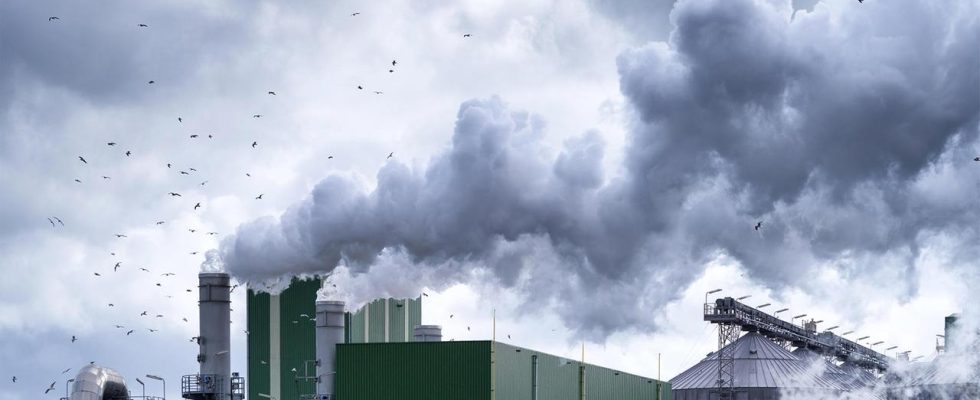analysis
The bad news from German industry just won’t stop. This doesn’t mean anything good for the economy: Is Germany also at risk of a recession in 2024?
It is not for nothing that industry is considered the engine of the German economy, as it contributes just over a quarter of the country’s gross domestic product. But this engine is sputtering badly – and not just since yesterday. Industrial production fell by 0.7 percent in November compared to October. This was not only a more significant weakness than expected – economists had expected an average increase of 0.2 percent. It was also the sixth consecutive decline. The last time there was a similarly long negative series was in 2008 during the financial crisis.
The further decline in production in November is just the icing on the cake in the long-term decline of German industry. The upward trend in German industrial production had already come to a standstill years ago; Since 2018, the production index of the manufacturing industry in Germany has shown a falling trend. Although the slump in the first year of the pandemic was quickly made up, the overarching downward trend is still intact.
Is Germany slipping into recession again?
The recession in industry has thus become more entrenched – and this in turn has massive consequences for the German economy. This is because industry in this country accounts for a relatively high share of economic output compared to other European countries. This will now be Germany’s downfall. There are increasing signs that the German economy will contract again in the fourth quarter, concludes Commerzbank chief economist Jörg Krämer.
In the third quarter of 2023, gross domestic product fell by 0.1 percent. Economists speak of a “technical recession” when there are two consecutive quarters of shrinking economic output. According to a number of experts, this now seems almost inevitable. For example, the Bundesbank wrote in its most recent monthly report: “The real gross domestic product (GDP) in Germany is likely to decline again in the fourth quarter of 2023.”
Bad starting point for that financial year 2024
The weak phase of the German economy continued until the end of the year. But what about 2024? Will everything finally get better in the new year? Economists are skeptical. The starting point for the new year has deteriorated, explains Commerzbank chief economist Krämer, who expects a decline of 0.3 percent in gross domestic product for 2024.
Sebastian Dullien, scientific director of the Institute for Macroeconomics and Business Cycle Research (IMK), also expects German economic output to shrink by 0.3 percent in the new year.
Leading indicators point towards recession
The industry is unlikely to emerge from crisis mode in 2024 – at least that is what the falling incoming orders signal. The truck toll mileage index, which, according to the Kiel Institute for the World Economy (IfW), is a “useful early indicator for industrial production,” also points in the same direction. No wonder, as around 80 percent of goods are transported in this country by truck.
The toll collection for truck traffic on federal highways provides very early information about current economic developments. In December, the corresponding index fell by 9.5 percent compared to the same month last year, and the overarching trend is also pointing downwards.
Other important early indicators point in the same direction; the ifo business climate is in recession territory. To make matters worse, it’s not just industry that is weakening – private consumption is also slowing down. This is indicated by the falling sales in retail.
Pressure on the ECB is increasing
But why is the German economy finding it so difficult to regain its footing? The chief economist at VP Bank, Thomas Gitzel, speaks of a “poisonous cocktail”: a combination of high inflation and interest rates with a simultaneously weak global economy. The European Central Bank left the key interest rate unchanged at 4.5 percent for the second time in a row in December. This was preceded by ten interest rate increases. Higher interest rates mean higher financing costs for companies, which dampens investments.
The fact is: The deteriorating economic prospects for the largest economy in the Eurozone are an important pointer in the direction of the ECB. The pressure is increasing on the monetary authorities around ECB boss Christine Lagarde to quickly initiate the interest rate turnaround in the new year – and thus give the economy some breathing room again.

